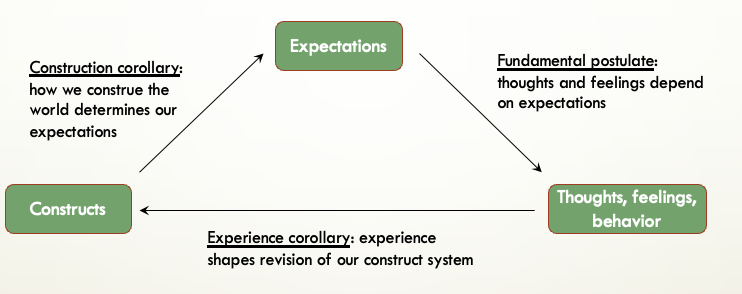George Kelley's Personal Construct Theory
1/16
There's no tags or description
Looks like no tags are added yet.
Name | Mastery | Learn | Test | Matching | Spaced | Call with Kai |
|---|
No analytics yet
Send a link to your students to track their progress
17 Terms
Kelly provides a bridge between what two traditions?
Humanistic Traditions (painted a dignified portrait of human nature)
Cognitive Traditions (focused on how we think and its consequences)
Constructive Alternativism
The capacity of an individual to change their interpretation of problems or events
Fundamental Postulate
Thoughts and feelings depend on expectations
Construction Corollary
How we construe the world determines our expectations
Experience corollary
Experience shapes precision of our construct system
Kelly’s Observations from Clinical Work (3)
Psychoanalytic explanations are preposterous
Yet, psychoanalysis works
What people need is a new way of understanding
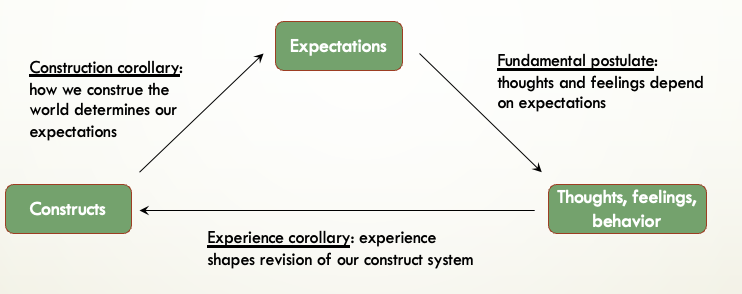
Personal Construct Theory
People develop constructs (or mental frameworks) about how the world world. These influence their expectations, and then their expectations influence their thoughts, feelings, and behavior, which impacts their constructs. It’s a cycle!
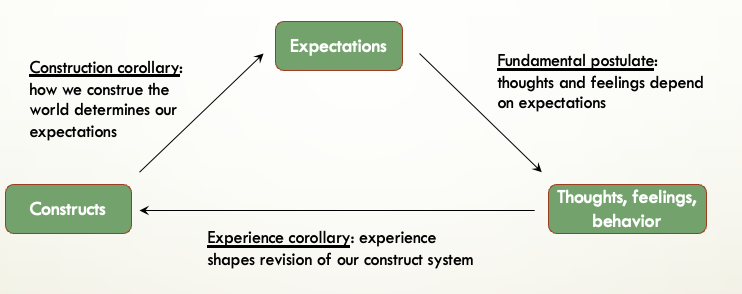
What process is similar to Personal Construct Theory?
How we carry out science: data → theory → hypothesis (then it repeats)
Dichotomy Corollary
Constructs are binary/dichotomous (split into two parts); Nice vs. mean
Does everyone have the same constructs?
No; everyone develops constructs separately through experience; we may have different constructions
Individuality Corollary
Individuals differ from one another in their construction of events (nice vs. mean versus nice vs. not nice)
Kelly’s Role Reciprocity Test
Make a grid, across the top write names of people who are important in your life, then think about characteristics that at least two of them share but at least one doesn’t have. Repeat this until you have difficult coming up with adjectives that don’t provide new patterns.
How can Kelly’s Role Reciprocity Test be shifted from an idiographic instrument to a nomothetic instrument?
It could be related back to the Big 5 traits and thus coded that way
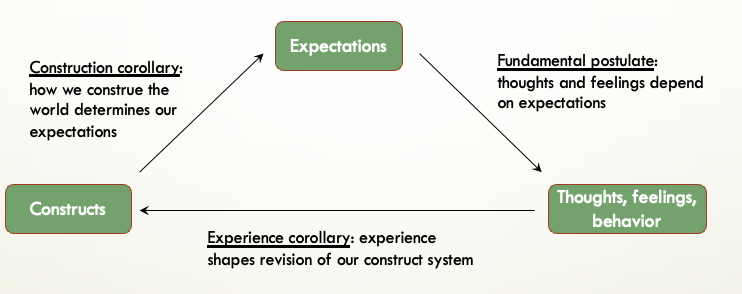
Order of Personal Construct Theory
Expectations → Thoughts/Feelings/Behaviors → Constructs (then it repeats)
What idea explains how expectations influences thoughts/feelings/behaviors?
Fundamental Postulate
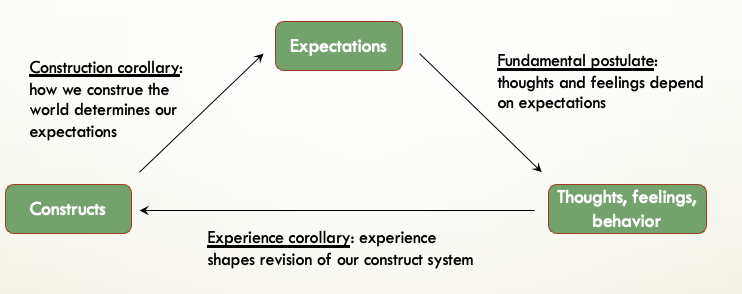
What idea explains how thoughts/feelings/behaviors influences constructs?
Experience Corollary
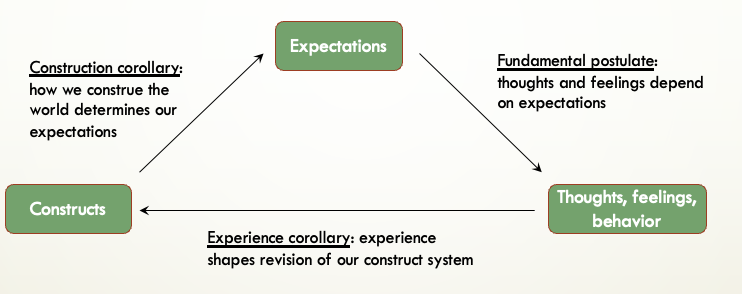
What idea explains how constructs shape our expectations?
Construction Corollary
